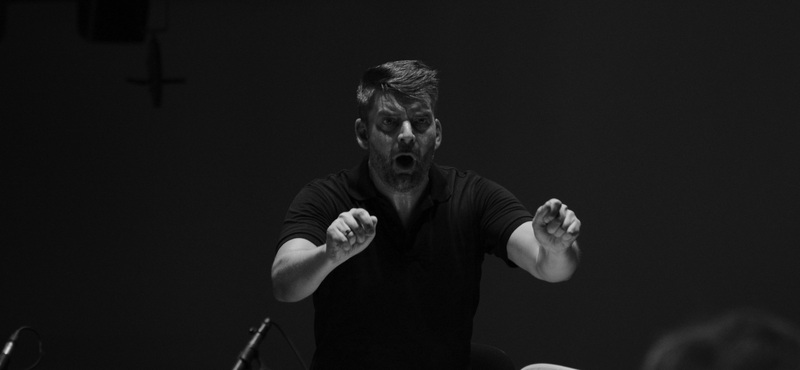Musical Diplomacy

Review: Shanghai Symphony Orchestra with Alisa Weilerstein at Wolf Trap
The Shanghai Symphony Orchestra, with a history stretching back to the 19th century, has been appearing around the world since the 1970’s, bringing Chinese works to the West and vice-versa; it won both an Oscar and a Grammy for the soundtrack recording to Crouching Tiger, Hidden Dragon. For its performance Wednesday at Wolf Trap, Music Director Long Yu chose warhorses by Dvořák and Rachmaninoff and a short opener, Wu Xing (The Five Elements), by Qigang Chen.
The orchestra is of a full symphonic proportion that no longer exists in the U.S.; 32 violins, 14 violas, 12 cellos, and nine basses. This depth of sound paid great dividends in Rachmaninoff’s Symphonic Dances, which pits the strings against a full array of winds/brass/percussion; for once, it was almost a fair fight. Of course, credit goes to Yu as well -- a seasoned maestro who has appeared with most of the top U.S. ensembles including the National Symphony. The final Rachmaninoff movement is a virtual concerto for orchestra, calling for the highest precision and virtuosity from top to bottom, and the SSO delivered most impressively.
Things went a bit less well in Dvořák’s Cello Concerto, which I’d chalk up to limited rehearsal time. Woodwind intonation was patchy throughout, and the big trio for horns in the Adagio was poorly-blended. The tutti passages in general had a businesslike rather than expressive quality, and Yu was ineffective in all of the notorious spots where the orchestra tends to drown out the soloist. Cellist Alisa Weilerstein, well-known to Washington audiences, delivered with her customary passion and ferocity, when you could hear her. She created a remarkable hushed atmosphere in her encore of a Bach Sarabande, the entire hall straining to listen.
Wu Xing – written 20 years ago – is a set of miniature tone-poems depicting water, wood, fire, earth, and metal (seems like there might be some overlap there, but whatever). I’m reminded of one of Beethoven’s notes in his manuscript for the Pastoral Symphony: “All painting in instrumental music is lost if it is pushed too far.” This work is not brutally dissonant like so many others (to the extent there was a tonal “language” it was pentatonic), but neither does it have musical content that rises above sound effects; and I cannot believe that any listener, without reading the program notes, would mentally conjure up the elements depicted.
My last gripe would be Yu’s choice of encores. The first, a Chinese folk song set for strings alone, was an insult to the SSO’s winds and brass, who had just played their hearts out in the Rachmaninoff and who earned the ovation as much as anyone else. And then a souped-up Hollywood arrangement of America the Beautiful, after two symphonic masterpieces, is not how a visiting orchestra endears itself.
All that aside, it was a welcome appearance by a fine orchestra, conductor, and soloist; attendance was light, but the applause was long and genuine.





